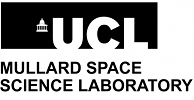Organisation Overview
Mullard Space Science Laboratory (MSSL), Australia, is the Adelaide branch of MSSL (UK), the official name of the Department of Space and Climate Physics of University College London.
MSSL undertakes a broad program of space related research across a broad range of science themes; astrophysics, planetary sciences, solar physics, space plasma physics and climate extremes.
The group has participated in over 200 sounding rockets and over 40 satellite and space probes. Its world-leading science program is supported by extensive technology capabilities applicable to space research including cryogenics, detector physics, electronic engineering and manufacturing, imaging, mechanical and thermal engineering and manufacturing, software engineering and computing, optics, cleanliness and contamination control, quality assurance, project management, systems engineering and test and calibration.
MSSL Australia has specific expertise in management of space instrumentation projects, systems engineering and detector development.
Expertise and Capabilities
MSSL specialises in the full lifecycle of instrument development for scientific payloads. Driven by international science goals it develops concepts, designs and manufactures scientific instrumentation for scientific spacecraft from all the major space agencies.
Its in house facilities include mechanical and electronic design offices and workshops (including surface mount capability), clean rooms (ISO class 5, 6 and 8), test equipment (calibration chambers, thermal vacuum chambers, and vibration test facilities) and operations facilities. These capabilities allow it to design, build, test, and operate its own bespoke scientific instruments.
Unique Selling Points
- Development of bespoke scientific instrumentation using in-house scientific expertise, design, manufacture, testing and analysis of data products.
- World class facilities for design, manufacture and testing of space hardware.
- Post graduate teaching and professional development training in space science and engineering, technology management, systems engineering management and managing complex projects.






